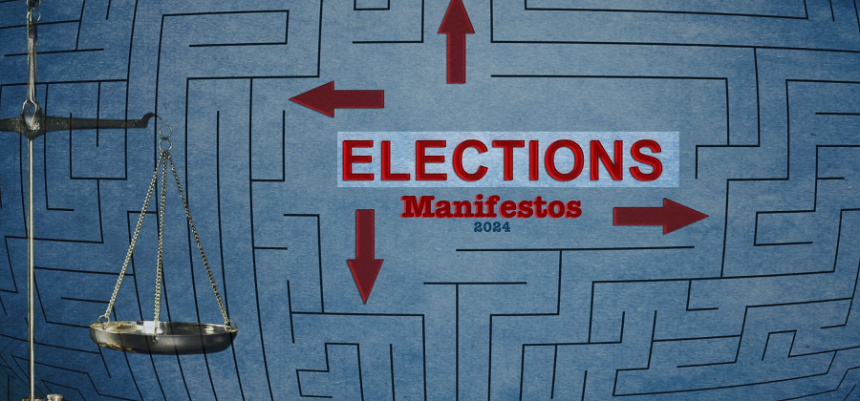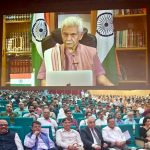Finally the desperate wait is over and the assembly elections in Jammu and Kashmir/ J-K are a few days away albeit in a changed political dynamics — Article 370 gone, the erstwhile state split into two Union Territories and the delimitation to redraw electoral constituencies done and dusted. The new electoral map has provided for 90 assembly seats in the J-K Union Territory (J-K UT). Following the Election Commission of India’ green signal for holding the polls, the contesting political parties have at short notice unveiled their manifestos, pointing to their meticulous poll readiness.
In the past too, the political parties would come up with their respective manifestos comprising of mouthwatering promises but their deliverance on the ground left a lot to be desired. It happened since what was promised in the manifestos was miles away from the ground realities. The promises simply pulled hordes of voters while the policies proved a tougher proposition, if not impossible, to be put into practice.
However, J-K UT is now at an interesting stage witnessing the democratic process since 2018 —when the PDP- BJP government fell to pave way for the ongoing presidential rule — and since the abrogation of the constitutional provision of Article 370 ( in August 2019) which gave a special status to then state of J-K and Ladakh. The UT ostensibly is no longer in a position to afford whimsical political approaches.
Without a doubt, people’s aspirations for free and fair elections are important but equally important is to follow through with an action plan to implement the manifestos after the government formation. Are all the issues highlighted in the current manifestos really required to be resolved? Can they be resolved in the new political context? If yes, can they effectively solve the real issues confronting public on daily basis? These questions are hard to answer. All political outfits must have a second look on the fallout of the poll promises envisioned in their manifestos.
Every party is entitled to have its own policies but the practical side of their execution should be presented to people in order to make informed decisions instead of displaying overzealousness towards catchy wordings of ideas disconnected from practical realities.
The social and economic impact of such policies should be impressed upon people. For instance, if any party (or candidate) promises to provide jobs, how that can be financed through an annual budget should be outlined. What if the job providing process is hijacked by those with powerful hands? How to make merit prevail, leaving no space for the shady practices to bring the incompetent and undeserving into government machinery?
There are myriad issues facing the job market: rampant corruption including suspicious recruitment episodes, dubious age and other entries in service records. Such entries not only have prolonged the service period of the unscrupulous elements beyond due dates of superannuation but also have prevented post/vacancy creation in various departments. Thus exacerbating the unemployment figures of the highly educated youth. Speaking dispassionately, the current administration has terminated the services of many wrong – entry officials.
Likewise, the UT’s economy is facing massive challenges. There are reports of electricity and pipe water theft by the influential consumers, including no payment of tariff through collusion at the lower rung level; misappropriation of taxpayers’ money; financial irregularities and bogus expenses in public institutions and what not. Do not forget the drug menace on the rise among youth and its traffickers. You may disagree with passion.
As the date of the elections draws nearer, we are certain to learn the candidates making many more promises they never mean to keep. In the past, many candidates —who promised to be heroes before the polls — proved to be villains for the unsuspecting electors after assuming office. So we, the voters, do not require hollow promises. We would like to hear what plans, if any, the candidates have to tackle the problems/ issues faced by the public: the underprivileged and ordinary employees as well as the other powerless people. Promises must see the light of the day after the electioneering.
Another big challenge confronting general public here is inflation, creating income inequalities which, in turn, inequalities in health, education, etc. The remorseless hike in the prices of essentials reduces the saving capacity and purchasing power of the lower and middle strata. Improving the standard of living of us, the ordinary people, should have been a part of some manifesto.
The growing unemployment figures of the highly educated and employable population is a key issue. Although this important matter has found mention in some recently issued manifestos, the pathway to address it is not unambiguous. Mere empty promises or construction of buildings will not suffice.
Speculations are rife that the outcome of the upcoming polls is bound to lead to a coalition government here. It may be recalled that the last regime also was a coalition and was marked by troubled times when it came to decision making. Now should the next government happen to be of coalition partners, meeting the poll promises is likely to prove a mountain to climb?
Thus, the candidates/ parties in the field at present should not get carried away and promise a rosy world. Why promise what can never be kept later on? Big lies have short shelf life. The best course will be to promise what is practical and achievable in the new political landscape of this poll bound UT. Recently, an ex- prime minister of a country stated he would bring food even if he had to go to the moon. Later, he felt remorseful for his failure but all in vain: Gone was his credibility.
(Author is RK columnist and teacher by profession. He can be reached at: [email protected])









